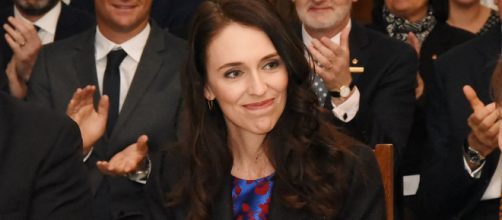Jacinda Ardern has been prime minister of New Zealand since 2017. She had taken over as leader of the New Zealand Labour Party shortly beforehand. At the time, becoming the Labour leader also effectively made her the leader of the Opposition.
Obviously, Ardern's time as Opposition leader would be brief. But there were indicators that she could've been headed back for the role in the not too distant future. New Zealand is slated to hold its next Parliamentary election in October. And the general sentiment as of late had been that Ardern and her party were in serious trouble.
But she won't be leading Labour into the election after all.
Says she's stepping away from politics
Jacinda Ardern is leaving the roles of prime minister and Labour leader, report Axios and The Hill. She will remain a member of the Parliament for the time being. But she apparently won't run as a candidate in the upcoming election.
Arder was initially elected to Parliament in 2008 as a Party List MP. Essentially an at-large member without a specific constituency. More recently, she has held a seat from the electorate of Mount Albert in the Auckland region. In 2017, she was initially selected as Labour's deputy leader following Annette King's decision to step aside. But a few months later, Party Leader Andrew Little also opted out of his role.
And Ardern was elevated to the party's top job.
Labour actually lost the 2017 election to the New Zealand National Party, led by incumbent Prime Minister Bill English. However, Labour would form a coalition with the Green Party and the controversial national party New Zealand First. The alliance was enough to take control of Parliament and make Ardern the prime minister. The 2020 election went significantly better for Labour and the controversial coalition was rendered unnecessary.
Jacinda Ardern is a native of Hamilton, New Zealand and is a member of a political family. She would attend the University of Waikato and Arizona State University. Afterward, Ardern was a staffer for future Opposition Leader Phil Goff and future Prime Minister Helen Clark.
She also worked in United Kingdom politics as an aide to Prime Minister Tony Blair. Additionally, she worked for a time in the U.K. Home Office.
The party has to elect a new leader
An obvious reaction to Jacinda Ardern's announcement is to question who will succeed her. Labour will have to elect a new leader, who would also as a result become prime minister. How long they stay in either role would remain to be seen. The party would likely still be at a decided disadvantage regarding the next election. The National Party, led by Opposition Leader Christopher Luxon, is typically considered the favorite.
Deputy Prime Minister Grant Robertson has said he will not run for the leader's role. Deputy Labour Leader Kelvin Davis could be the favorite if he chooses to run. Others receiving attention for the job include Education Minister Christopher Hipkins an Justice Minister Kiri Allan.


